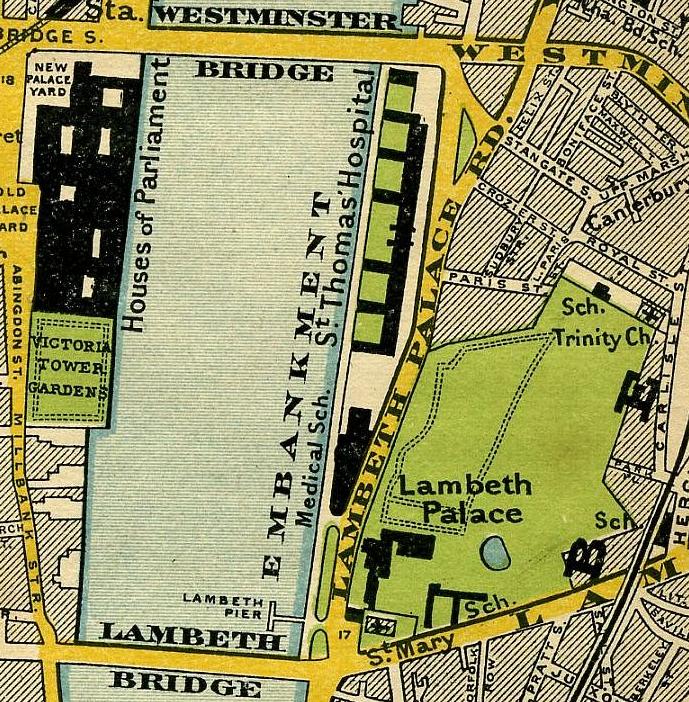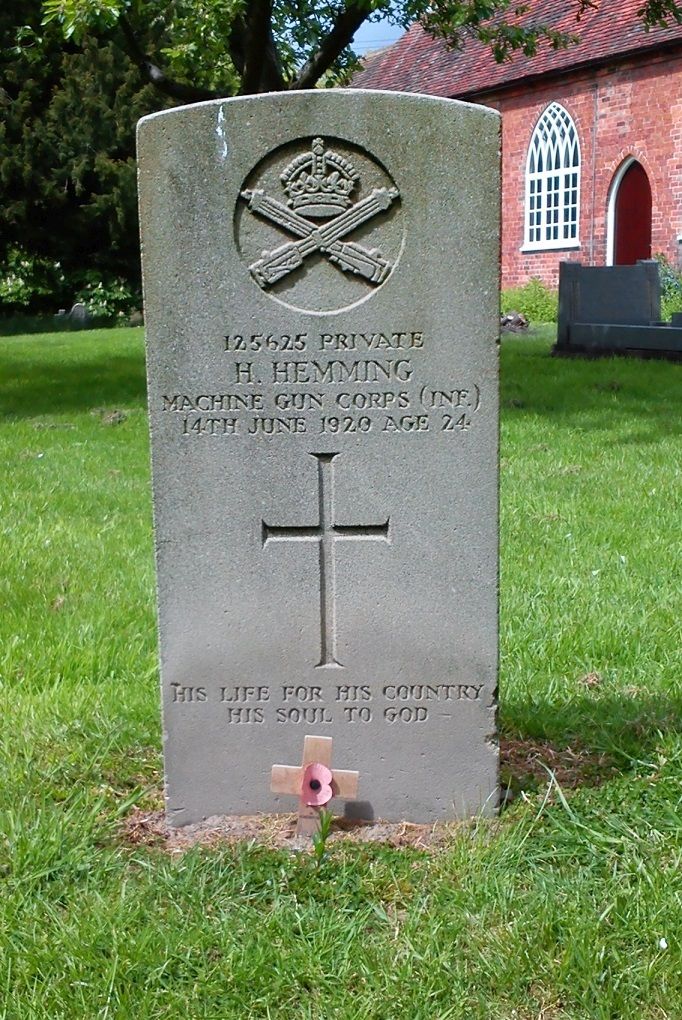|
John Henry Stephen Dimmer
Lieutenant Colonel John Henry Stephen Dimmer (9 October 1883 – 21 March 1918) was an English recipient of the Victoria Cross, the highest and most prestigious award for gallantry in the face of the enemy that can be awarded to British and Commonwealth forces. Life Born on 9 October 1883 in Lambeth, his family moved to Wimbledon where Dimmer was educated at Rutlish School, Merton Park. In July 1902 he enlisted into the King's Royal Rifle Corps (KRRC), and was soon promoted to Corporal, then to Lance Sergeant. In 1906 he passed an officer's examination and was commissioned second lieutenant in the KRRC. Lack of financial backing meant he could not afford to serve with the regiment, and in 1908 he was attached to the West Africa Regiment as a local Lieutenant. Dimmer was on home leave when the First World War broke out, and he went to France with the 2nd KRRC in August 1914. Citation A 31 year old lieutenant in the 2nd Battalion, The King's Royal Rifle Corps, Dimmer was aw ... [...More Info...] [...Related Items...] OR: [Wikipedia] [Google] [Baidu] |
Lambeth
Lambeth () is a district in South London, England, in the London Borough of Lambeth, historically in the County of Surrey. It is situated south of Charing Cross. The population of the London Borough of Lambeth was 303,086 in 2011. The area experienced some slight growth in the medieval period as part of the manor of Lambeth Palace. By the Victorian era the area had seen significant development as London expanded, with dense industrial, commercial and residential buildings located adjacent to one another. The changes brought by World War II altered much of the fabric of Lambeth. Subsequent development in the late 20th and early 21st centuries has seen an increase in the number of high-rise buildings. The area is home to the International Maritime Organization. Lambeth is home to one of the largest Lusophone, Portuguese-speaking communities in the UK, and is the second most commonly spoken language in Lambeth after English language, English. History Medieval The origins of the ... [...More Info...] [...Related Items...] OR: [Wikipedia] [Google] [Baidu] |
Lieutenant
A lieutenant ( , ; abbreviated Lt., Lt, LT, Lieut and similar) is a commissioned officer rank in the armed forces of many nations. The meaning of lieutenant differs in different militaries (see comparative military ranks), but it is often subdivided into senior (first lieutenant) and junior (second lieutenant and even third lieutenant) ranks. In navies, it is often equivalent to the army rank of captain; it may also indicate a particular post rather than a rank. The rank is also used in fire services, emergency medical services, security services and police forces. Lieutenant may also appear as part of a title used in various other organisations with a codified command structure. It often designates someone who is " second-in-command", and as such, may precede the name of the rank directly above it. For example, a "lieutenant master" is likely to be second-in-command to the "master" in an organisation using both ranks. Political uses include lieutenant governor in various g ... [...More Info...] [...Related Items...] OR: [Wikipedia] [Google] [Baidu] |
UK Victoria Cross Ribbon Bar
The United Kingdom of Great Britain and Northern Ireland, commonly known as the United Kingdom (UK) or Britain, is a country in Europe, off the north-western coast of the continental mainland. It comprises England, Scotland, Wales and Northern Ireland. The United Kingdom includes the island of Great Britain, the north-eastern part of the island of Ireland, and many smaller islands within the British Isles. Northern Ireland shares a land border with the Republic of Ireland; otherwise, the United Kingdom is surrounded by the Atlantic Ocean, the North Sea, the English Channel, the Celtic Sea and the Irish Sea. The total area of the United Kingdom is , with an estimated 2020 population of more than 67 million people. The United Kingdom has evolved from a series of annexations, unions and separations of constituent countries over several hundred years. The Treaty of Union between the Kingdom of England (which included Wales, annexed in 1542) and the Kingdom of Scotland in 1707 ... [...More Info...] [...Related Items...] OR: [Wikipedia] [Google] [Baidu] |
British Fascists
The British Fascists was the first political organisation in the United Kingdom to claim the label of fascist, although the group had little ideological unity apart from anti-socialism for much of its existence, and was strongly associated with conservatism. William Joyce, Neil Francis Hawkins, Maxwell Knight and Arnold Leese were amongst those to have passed through the movement as members and activists. Structure and membership The organisation was formed on 6 May 1923 by Rotha Lintorn-Orman in the aftermath of Benito Mussolini's March on Rome, and originally operated under the Italian-sounding name British Fascisti. Despite its name, the group had a poorly defined ideological basis at its beginning, being brought into being more by a fear of left-wing politics than a devotion to fascism. The ideals of the Boy Scout movement, with which many early members had also been involved in their younger days, also played a role, for the British Fascisti wished, according to Genera ... [...More Info...] [...Related Items...] OR: [Wikipedia] [Google] [Baidu] |
Royal Flying Corps
"Through Adversity to the Stars" , colors = , colours_label = , march = , mascot = , anniversaries = , decorations = , battle_honours = , battles_label = Wars , battles = First World War , disbanded = merged with RNAS to become Royal Air Force (RAF), 1918 , current_commander = , current_commander_label = , ceremonial_chief = , ceremonial_chief_label = , colonel_of_the_regiment = , colonel_of_the_regiment_label = , notable_commanders = Sir David HendersonHugh Trenchard , identification_symbol = , identification_symbol_label = Roundel , identification_symbol_2 = , identification_symbol_2_label = Flag , aircraft_attack = , aircraft_bomber = , aircraft_el ... [...More Info...] [...Related Items...] OR: [Wikipedia] [Google] [Baidu] |
Leopold Ernest Stratford George Canning, 4th Baron Garvagh
Leopold Ernest Stratford George Canning, 4th Baron Garvagh, (21 July 1878 – 16 July 1956) was a British nobleman, motorist, fighter pilot and politician, being the co-founder of the British Fascisti alongside Rotha Lintorn-Orman in 1923. Biography Canning was among the first motorists in Ireland – he imported a six hp Panhard to Ireland from France in 1898. Later he participated in several auto races using motor-powered tricycles. He was also among the founders of the Motor Cycle Union of Ireland and the Irish Automobile Club.PastImperfect ''Irish Times'', 31 December 2003. Accessed 16 May 2020. ''Motoring Annual and Motorist’s Year Book 1904'' records him owning four Ormonde motorcycles and having high hopes about the future of motor industry in Britain. [...More Info...] [...Related Items...] OR: [Wikipedia] [Google] [Baidu] |
Royal Berkshire Regiment
The Royal Berkshire Regiment (Princess Charlotte of Wales's) was a line infantry regiment of the British Army in existence from 1881 until 1959. The regiment was created in 1881, as the Princess Charlotte of Wales's (Royal Berkshire Regiment), by the amalgamation of the 49th (Princess Charlotte of Wales's) (Hertfordshire) Regiment of Foot and the 66th (Berkshire) Regiment of Foot. In 1921, it was renamed the Royal Berkshire Regiment (Princess Charlotte of Wales's). The regiment saw active service in the Second Boer War, World War I and World War II. On 9 June 1959, the Royal Berkshire Regiment (Princess Charlotte of Wales's) was amalgamated with the Wiltshire Regiment (Duke of Edinburgh's) to form the Duke of Edinburgh's Royal Regiment (Berkshire and Wiltshire) which was again amalgamated, on 27 July 1994, with the Gloucestershire Regiment to create the Royal Gloucestershire, Berkshire and Wiltshire Regiment. Like its predecessor regiment, however, this was on 1 February 2007, me ... [...More Info...] [...Related Items...] OR: [Wikipedia] [Google] [Baidu] |
France
France (), officially the French Republic ( ), is a country primarily located in Western Europe. It also comprises of Overseas France, overseas regions and territories in the Americas and the Atlantic Ocean, Atlantic, Pacific Ocean, Pacific and Indian Oceans. Its Metropolitan France, metropolitan area extends from the Rhine to the Atlantic Ocean and from the Mediterranean Sea to the English Channel and the North Sea; overseas territories include French Guiana in South America, Saint Pierre and Miquelon in the North Atlantic, the French West Indies, and many islands in Oceania and the Indian Ocean. Due to its several coastal territories, France has the largest exclusive economic zone in the world. France borders Belgium, Luxembourg, Germany, Switzerland, Monaco, Italy, Andorra, and Spain in continental Europe, as well as the Kingdom of the Netherlands, Netherlands, Suriname, and Brazil in the Americas via its overseas territories in French Guiana and Saint Martin (island), ... [...More Info...] [...Related Items...] OR: [Wikipedia] [Google] [Baidu] |
Machine Gun Corps
The Machine Gun Corps (MGC) was a corps of the British Army, formed in October 1915 in response to the need for more effective use of machine guns on the Western Front in the First World War. The Heavy Branch of the MGC was the first to use tanks in combat and was subsequently turned into the Tank Corps, later called the Royal Tank Regiment. The MGC remained in existence after the war until it was disbanded in 1922. Formation At the outbreak of the First World War in August 1914, the tactical potential of machine guns was not appreciated by the British Armed Forces. The prevalent attitude of senior ranks at the outbreak of the Great War can be summed up by the opinion of an officer expressed a decade earlier that a single battery of machine guns per army corps was a sufficient level of issue. Despite the evidence of fighting in Manchuria (1905 onwards) the army therefore went to war with each infantry battalion and cavalry regiment containing a machine gun section of just two ... [...More Info...] [...Related Items...] OR: [Wikipedia] [Google] [Baidu] |
Macedonian Front
The Macedonian front, also known as the Salonica front (after Thessaloniki), was a military theatre of World War I formed as a result of an attempt by the Allied Powers to aid Serbia, in the autumn of 1915, against the combined attack of Germany, Austria-Hungary and Bulgaria during World War I, Bulgaria. The expedition came too late and in insufficient force to prevent the fall of Serbia, and was complicated by the internal political crisis in Kingdom of Greece, Greece (the "National Schism"). Eventually, a stable front was established, running from the Albanian Adriatic Sea, Adriatic coast to the Struma River, pitting a Allied Army of the Orient, multinational Allied force against the Bulgarian Army, which was at various times bolstered with smaller units from the other Central Powers. The Macedonian front remained quite stable, despite local actions, Vardar offensive, until the great Allied offensive in September 1918, which resulted in the capitulation of Bulgaria and the libe ... [...More Info...] [...Related Items...] OR: [Wikipedia] [Google] [Baidu] |
Brigade Major
A brigade major was the chief of staff of a brigade in the British Army. They most commonly held the rank of major, although the appointment was also held by captains, and was head of the brigade's "G - Operations and Intelligence" section directly, and oversaw the two other branches, "A – Administration" and "Q – Quartermaster". Intentionally ranked lower than the lieutenant colonels commanding the brigade's combat battalions, his role was to expand on, detail and execute the intentions of the commanding brigadier. In 1913, staff captains of artillery in the British Army were re-styled as brigade majors to bring them into line with cavalry and infantry practice. In the 21st century, the title is no longer used except in the Household Division and in divisional-level artillery headquarters. As of 2014 the title is still retained by HQ London District. During World War I, the brigade major was reportedly "a key personality who affected the health and happiness of the battalion ... [...More Info...] [...Related Items...] OR: [Wikipedia] [Google] [Baidu] |
.jpg)




.jpg)